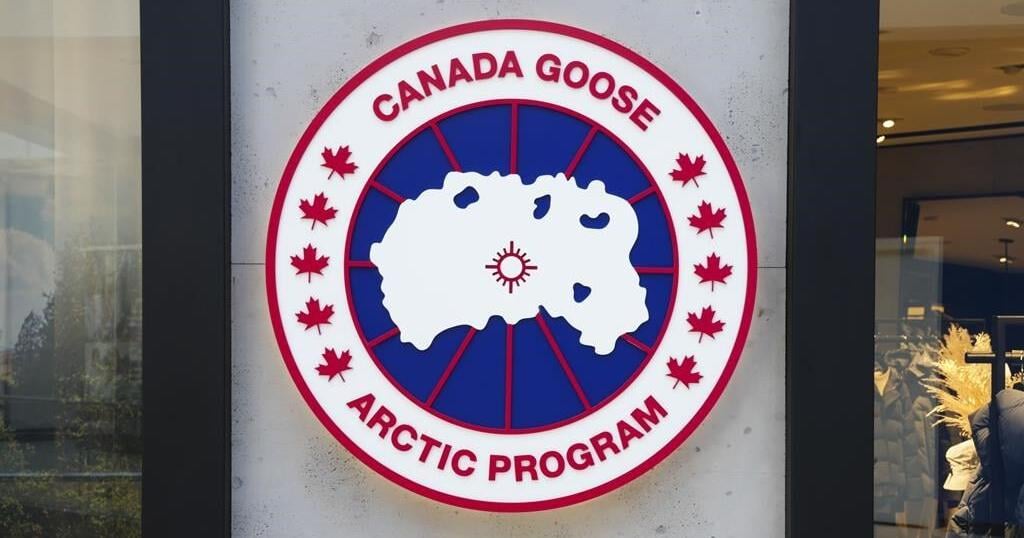A new nationwide poll shows Albertans are worried about their personal finances and feel as though they are falling behind as inflation rates continue to remain high.
Business
New poll shows Albertans are increasingly worried about their personal finances

Nationally, those numbers came in at 38 per cent, 44 per cent and 13 per cent respectively.There is a 4.7 per cent margin of error attributed to Albertan responses.
While looking to the future, 61 per cent of respondents said they felt their household incomes would fall behind inflation in 2023 and 74 per cent highlighted negative feelings about their financial situation.
“They already feel like things are not going great and there’s not a lot of optimism when you look ahead to 2023 either in Alberta or in the rest of the country for that matter,” said Arnold.
A recession is generally defined as occuring when there is a slowing of spending or economic activity for two consecutive quarters. Other definitions keep its limits more broad using a phrase stating there must be a prolonged, widespread and significant downturn.
Analysts in Canada have made a number of assessments and predictions on the country’s economic outlook with some stating the country could be in for a “downturn” and others predicting a full recession.
Trevor Tombe, an economist with the University of Calgary said Canada is absolutely not in a recession stating latest job market numbers remain strong. He said he believes if Albertans were pressed to clarify their thoughts they would agree we are not in a net recession but noted those 80 per cent of respondents are stating they are having a difficult or stressed time financially in the face of inflation.
Tombe said that sentiment, with people delaying large purchases, could have a shrinking effect but that it wouldn’t be a major shrinking of economic activity.
“It’s not the make or break to whether or not the economy grows or shrinks,” said Tombe.
Both Tombe and Arnold said regardless of a recession or not, people’s attitudes towards their finances matter as it affects people’s attitude.
Arnold said if people are feeling that they have to pinch their pennies that could lead to changes in voting habits.
Meanwhile, Tombe said he believes that’s a reason why governments across the country have taken notice and introduced measures to ease voters’ financial burdens.

Business
TC Energy cuts cost estimate for Southeast Gateway pipeline project in Mexico

CALGARY – TC Energy Corp. has lowered the estimated cost of its Southeast Gateway pipeline project in Mexico.
It says it now expects the project to cost between US$3.9 billion and US$4.1 billion compared with its original estimate of US$4.5 billion.
The change came as the company reported a third-quarter profit attributable to common shareholders of C$1.46 billion or $1.40 per share compared with a loss of C$197 million or 19 cents per share in the same quarter last year.
Revenue for the quarter ended Sept. 30 totalled C$4.08 billion, up from C$3.94 billion in the third quarter of 2023.
TC Energy says its comparable earnings for its latest quarter amounted to C$1.03 per share compared with C$1.00 per share a year earlier.
The average analyst estimate had been for a profit of 95 cents per share, according to LSEG Data & Analytics.
This report by The Canadian Press was first published Nov. 7, 2024.
Companies in this story: (TSX:TRP)
The Canadian Press. All rights reserved.
Business
BCE reports Q3 loss on asset impairment charge, cuts revenue guidance

BCE Inc. reported a loss in its latest quarter as it recorded $2.11 billion in asset impairment charges, mainly related to Bell Media’s TV and radio properties.
The company says its net loss attributable to common shareholders amounted to $1.24 billion or $1.36 per share for the quarter ended Sept. 30 compared with a profit of $640 million or 70 cents per share a year earlier.
On an adjusted basis, BCE says it earned 75 cents per share in its latest quarter compared with an adjusted profit of 81 cents per share in the same quarter last year.
“Bell’s results for the third quarter demonstrate that we are disciplined in our pursuit of profitable growth in an intensely competitive environment,” BCE chief executive Mirko Bibic said in a statement.
“Our focus this quarter, and throughout 2024, has been to attract higher-margin subscribers and reduce costs to help offset short-term revenue impacts from sustained competitive pricing pressures, slow economic growth and a media advertising market that is in transition.”
Operating revenue for the quarter totalled $5.97 billion, down from $6.08 billion in its third quarter of 2023.
BCE also said it now expects its revenue for 2024 to fall about 1.5 per cent compared with earlier guidance for an increase of zero to four per cent.
The company says the change comes as it faces lower-than-anticipated wireless product revenue and sustained pressure on wireless prices.
BCE added 33,111 net postpaid mobile phone subscribers, down 76.8 per cent from the same period last year, which was the company’s second-best performance on the metric since 2010.
It says the drop was driven by higher customer churn — a measure of subscribers who cancelled their service — amid greater competitive activity and promotional offer intensity. BCE’s monthly churn rate for the category was 1.28 per cent, up from 1.1 per cent during its previous third quarter.
The company also saw 11.6 per cent fewer gross subscriber activations “due to more targeted promotional offers and mobile device discounting compared to last year.”
Bell’s wireless mobile phone average revenue per user was $58.26, down 3.4 per cent from $60.28 in the third quarter of the prior year.
This report by The Canadian Press was first published Nov. 7, 2024.
Companies in this story: (TSX:BCE)
The Canadian Press. All rights reserved.
Business
Canada Goose reports Q2 revenue down from year ago, trims full-year guidance

TORONTO – Canada Goose Holdings Inc. trimmed its financial guidance as it reported its second-quarter revenue fell compared with a year ago.
The luxury clothing company says revenue for the quarter ended Sept. 29 totalled $267.8 million, down from $281.1 million in the same quarter last year.
Net income attributable to shareholders amounted to $5.4 million or six cents per diluted share, up from $3.9 million or four cents per diluted share a year earlier.
On an adjusted basis, Canada Goose says it earned five cents per diluted share in its latest quarter compared with an adjusted profit of 16 cents per diluted share a year earlier.
In its outlook, Canada Goose says it now expects total revenue for its full financial year to show a low-single-digit percentage decrease to low-single-digit percentage increase compared with earlier guidance for a low-single-digit increase.
It also says it now expects its adjusted net income per diluted share to show a mid-single-digit percentage increase compared with earlier guidance for a percentage increase in the mid-teens.
This report by The Canadian Press was first published Nov. 7, 2024.
Companies in this story: (TSX:GOOS)
The Canadian Press. All rights reserved.
-

 News6 hours ago
News6 hours agoTime limits were meant to speed up justice. They also halt hundreds of criminal cases
-

 News6 hours ago
News6 hours agoDonald Trump election sparks U.S. interest in move to Canada, say immigration lawyers
-

 News3 hours ago
News3 hours agoTelus prioritizing ‘most important customers,’ avoiding ‘unprofitable’ offers: CFO
-

 News4 hours ago
News4 hours agoWho will buy Infowars? Both supporters and opponents of Alex Jones interested in bankruptcy auction
-

 News4 hours ago
News4 hours ago‘Big frustration’: How a limited MAID window affects Alzheimer’s patients
-

 News1 hour ago
News1 hour agoPort of Montreal employer submits ‘final’ offer to dockworkers, threatens lockout
-

 News4 hours ago
News4 hours agoEnvironment commissioner says Canada on track to miss 2030 emissions targets
-

 News6 hours ago
News6 hours agoIn the news today: N.S. votes: Tories to release platform today




















